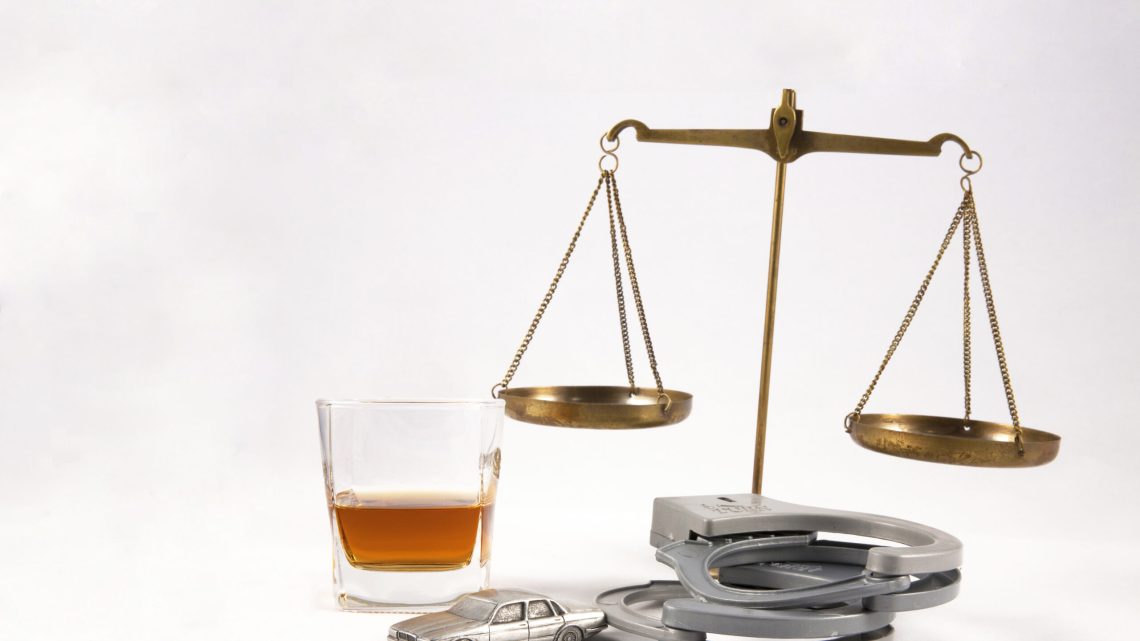
Understanding DUI Penalties and Laws: License Suspension, Fines, and Offenses
March 9, 2024Driving under the influence (DUI) is a serious offense with severe penalties that can have a lasting impact on an individual’s life. DUI, also referred to as driving while intoxicated (DWI) in some jurisdictions, occurs when a person operates a motor vehicle while under the influence of alcohol or drugs, resulting in impaired driving. A DUI conviction can lead to a range of legal penalties, including fines, license suspension, and possible jail time.
What Is DUI and What Are the Penalties?
Defining DUI and related offenses encompasses the act of operating a motor vehicle with a blood alcohol content (BAC) above the legal limit. Additionally, driving under the influence of drugs or a combination of alcohol and drugs can also constitute a DUI offense. The legal penalties for a DUI conviction may vary depending on the specific circumstances of the offense, but typically include fines, license suspension, and in some cases, jail time.
License suspension and revocation are common consequences of a DUI conviction. When a person is convicted of a DUI offense, their driving privileges may be suspended or revoked for a specified period, often ranging from 90 days to several years, depending on the nature of the offense and whether it is a first-time DUI or a subsequent offense.
How Does a DUI Offense Affect Your Driving Privileges?
Understanding license suspension is critical for individuals facing DUI charges. License suspension involves the temporary withdrawal of an individual’s driving privileges as a result of a DUI conviction. In some cases, individuals may be required to install an ignition interlock device (IID) in their vehicle as a condition of reinstating their driving privileges following a DUI conviction. This device measures the driver’s BAC and prevents the vehicle from starting if the BAC is above the legal limit.
Suspension or revocation due to a DUI conviction can significantly impact an individual’s daily life, making it challenging to fulfill obligations such as commuting to work or transporting family members. It is important for individuals facing DUI charges to understand the potential repercussions and take necessary steps to address their situation.
What Are the Consequences of Multiple DUI Offenses?
Subsequent DUI offenses and aggravated penalties can result in more severe consequences for individuals with prior DUI convictions. Repeat offenders may face harsher penalties, including longer license suspension periods, increased fines, and potential jail time. In some cases, multiple DUI offenses can escalate to felony DUI charges, carrying even more severe penalties and long-term ramifications for the offender.
Jail time and DWI sentencing may apply to individuals convicted of multiple DUI offenses. The legal system imposes strict penalties for repeat DUI offenders, and the severity of the consequences may escalate with each subsequent offense, especially in cases where the offense has led to impaired driving resulting in accidents or injuries. Aggravated vehicular assault is a serious offense that may result from impaired driving and can lead to significant legal ramifications, including potential felony charges.
How Do DUI Laws Differ Across States?
Variations in DUI penalties by state can lead to differences in legal consequences for DUI offenses. Each state has its own set of drunk driving laws, which may include distinct penalties, fines, and legal requirements for DUI offenders. Community service and additional DUI penalties, such as mandatory alcohol education programs, may also vary across states, adding to the complexity of DUI laws and penalties.
Alcohol-related offenses can have varying legal implications depending on the state in which the offense occurred. Some states impose stricter penalties for DUI convictions, while others may have specific provisions for first-time DUI offenders, including alternative sentencing options and reduced penalties for minor offenses. Individuals need to be aware of the DUI laws in their state and understand the potential consequences of a DUI conviction.
What Should You Do If Facing DUI Charges?
Legal options and defense strategies are essential considerations for individuals facing DUI charges. Seeking legal counsel from a qualified attorney who specializes in DUI cases can provide crucial guidance and support throughout the legal process. Understanding blood alcohol concentration (BAC) and its influence on DUI conviction is a key aspect of developing a solid defense strategy against DUI charges. An attorney can assess the circumstances of the DUI arrest and devise a defense based on the specific details of the case.
The role of legal counsel in DUI cases is pivotal in navigating the legal system and advocating for the best possible outcome for the defendant. An experienced attorney can represent the individual in court, negotiate with prosecutors, and present compelling arguments in defense of the accused. It is important for individuals facing DUI charges to seek legal representation promptly and cooperate fully with their legal counsel to address their case effectively.
What are the penalties for a first DUI offense?
Penalties for a first DUI offense can vary by state but typically include fines, license suspension, and possibly jail time. In some cases, the offender may also be required to install an ignition interlock device in their vehicle.
What is the difference between a license suspension and a license revocation?
A license suspension is a temporary withdrawal of driving privileges, while a license revocation is the termination of the offender’s driving privileges. The duration and terms of each can vary by state and the specific circumstances of the DUI conviction.
What constitutes an aggravated DUI offense?
An aggravated DUI offense typically involves factors that increase the severity of the DUI charge, such as excessively high blood alcohol concentration, DUI with a minor in the vehicle, or causing serious injury or death while driving under the influence. The penalties for aggravated DUI are usually more severe than for a standard DUI.
Can a DUI conviction result in jail or prison time?
Yes, a DUI conviction can lead to jail or prison time, especially for subsequent DUI offenses or aggravated DUI cases. The amount of jail time can vary based on state laws and the specific circumstances of the offense.
What is an ignition interlock device, and when is it required for DUI offenders?
An ignition interlock device is a breathalyzer installed in a vehicle’s ignition system, requiring the driver to pass a breath test before the car can start. It is often required for DUI offenders, especially for repeat offenders or those convicted of driving with a high blood alcohol concentration.
How do DUI laws and penalties differ for underage DUI offenders?
DUI laws for underage offenders are typically stricter, with lower thresholds for blood alcohol concentration and harsher penalties. In some states, underage DUI offenders may face license suspension, fines, and mandatory participation in alcohol education or treatment programs.
What are the potential consequences of refusing to take a breathalyzer or chemical test when suspected of DUI?
Refusing to take a breathalyzer or chemical test when suspected of DUI can result in immediate license suspension and may be used as evidence against the offender in court. The penalties for refusal can vary by state.
Are there increased penalties for driving under the influence with a high blood alcohol concentration?
Yes, many states impose enhanced penalties for driving under the influence with a high blood alcohol concentration, often defined as a level significantly above the legal limit. These penalties can include longer license suspension, higher fines, and extended jail time.
What is the process for license reinstatement after a DUI conviction?
The process for license reinstatement after a DUI conviction varies by state but generally involves completing any required period of suspension or revocation, paying reinstatement fees, and possibly completing a DUI education or treatment program. The offender may also need to provide proof of financial responsibility (such as an SR-22) to regain their driving privileges.
How do subsequent DUI offenses impact penalties and sentencing?
Subsequent DUI offenses often lead to harsher penalties, including longer license suspension, higher fines, and increased jail or prison time. Some states have mandatory minimum penalties for repeat DUI offenders, making it important for individuals to understand the potential consequences of multiple DUI convictions.
Conclusion
Driving under the influence of alcohol is a serious offense that can have severe consequences. A first offense DUI can result in your driver’s license being suspended for 90 days, mandatory jail time, and hefty fines. If you are caught driving while under the influence for a second offense, the penalties become even more severe, with the possibility of spending up to six months in jail. In some states, a third offense is treated as a misdemeanor and punishable by even harsher penalties, such as a longer jail sentence and a permanently revoked driver’s license.
One of the most dangerous aspects of drunk driving is the risk of causing harm to others on the road. If a drunk driver’s actions result in someone being killed or injured, the legal consequences can be even more severe, with the possibility of facing felony charges. This is why it is crucial to never get behind the wheel with any amount of alcohol in your system. Additionally, some states require mandatory jail time or other penalties for drivers who refuse to take a breathalyzer test when suspected of driving while under the influence.
Aside from legal consequences, being convicted of drunk driving can also have financial repercussions. In addition to fines and legal fees, your insurance company may choose to cancel your policy or drastically increase your rates. This can make it difficult to find affordable coverage in the future. For first offenders, the insurance company may offer the option to temporarily or permanently cancel the policy. These factors are present in many cases of drunk driving convictions, making it crucial to never get behind the wheel after consuming alcohol, regardless of your legal drinking age.
In conclusion, the consequences of driving under the influence are severe and should not be taken lightly. Not only do you risk legal penalties, but you also put yourself and others in danger of serious injury or death. It is crucial to always have a designated driver or use alternative forms of transportation if you plan on drinking. By making responsible choices, we can all help prevent accidents caused by drunk driving and keep our roads safe for everyone.


